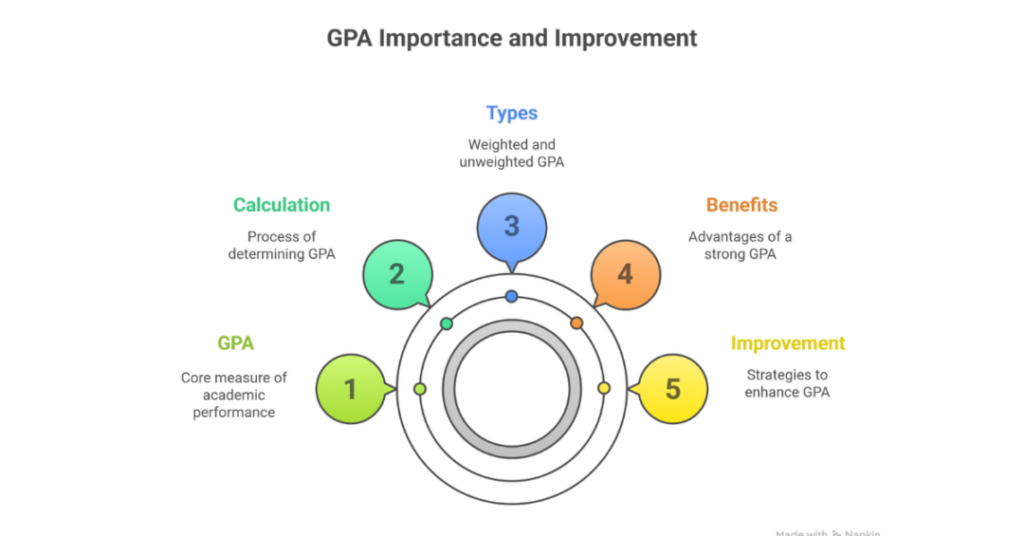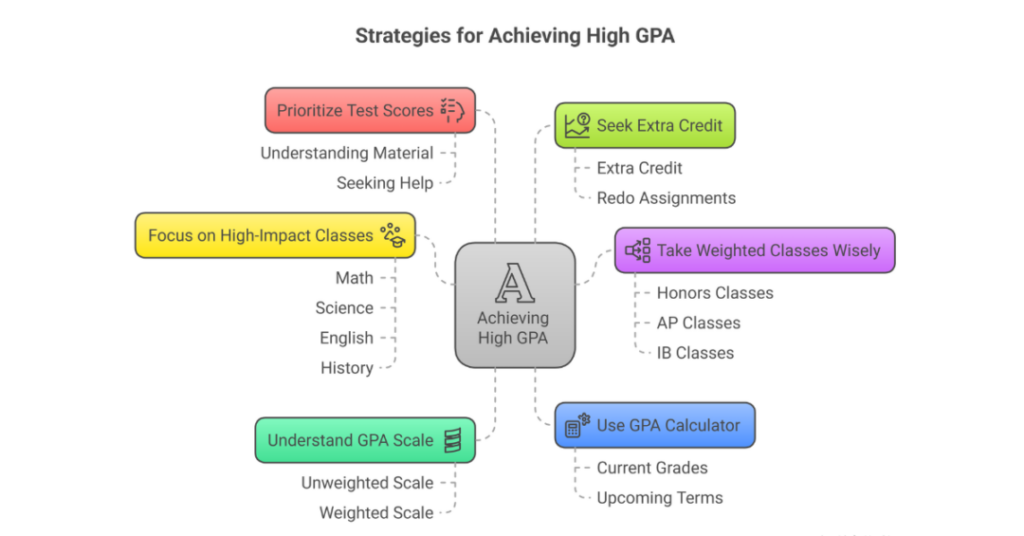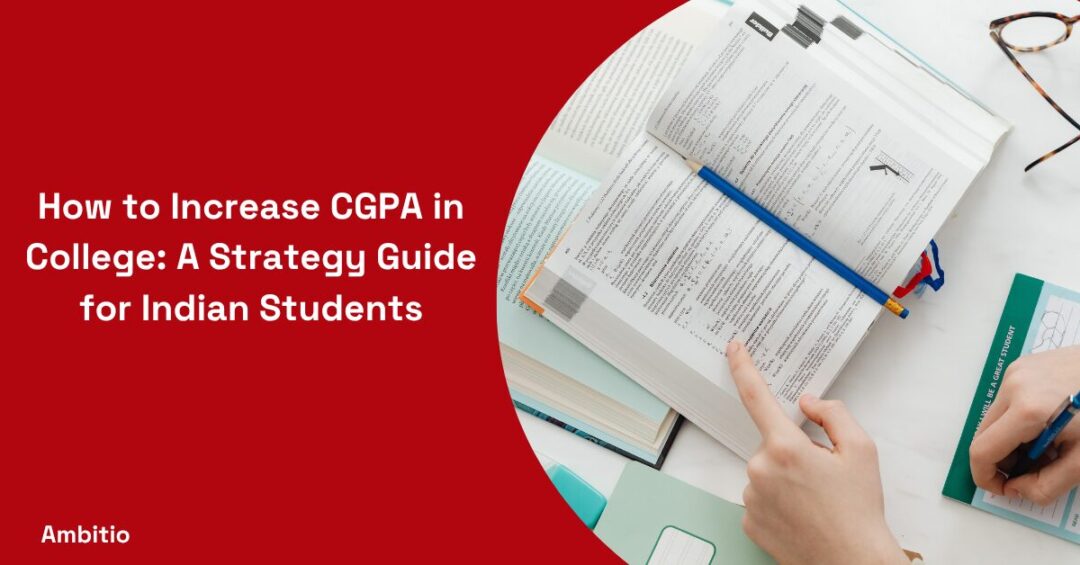27 June 2025
6 minutes read
What Is The Highest GPA (Grade Point Average)?

Key Takeaways
- Understanding the highest GPA a 4.0 unweighted scale is standard but weighted scales can exceed 4.0 rewarding advanced courses like AP or IB
- Strategize for success focus on weighted classes core subjects and use GPA calculators to set realistic academic goals
- Balance beyond GPA colleges value a high GPA alongside test scores extracurriculars and overall academic growth
Ever wondered what the highest GPA is and how it actually works? Most high school students, and even college applicants, get wrapped up in the numbers game, aiming for the “highest GPA” possible, often without fully understanding the calculation behind it. Whether it’s on a traditional 4.0 unweighted scale or a weighted GPA scale that goes beyond 4.0, the race to achieve perfection can be confusing and stressful, especially when school policies and scales vary widely.
Obsessing over a perfect GPA can sometimes overshadow other important aspects of your academic profile, like test scores and extracurricular achievements that colleges equally value. But understanding how GPA is calculated on both weighted and unweighted scales can help you set realistic goals. In this blog, we’ll break down GPA scales and clear up any confusion so you can focus on what truly matters for college admission.
What Is GPA and Why Does It Matter?
GPA, or Grade Point Average, is the measure of how well you did in school, typically on a 4.0 scale, with 4.0 being the highest possible GPA you can achieve. Schools use an average GPA scale to calculate your GPA, whether weighted or unweighted.

Your cumulative GPA and overall GPA reflect performance across all classes throughout high school. AP courses make it possible for students to earn a higher weighted GPA. A strong GPA can boost your chances of admission, scholarships, and more. Whether your current GPA is a 3.0 GPA or below-average GPA, it’s possible to improve your GPA over time.
GPA vs Percentage: What Indian Students Should Know
For Indian students, understanding GPA is essential when applying to universities abroad. Unlike percentage-based systems, GPA is the grade point average used by many high schools globally, typically on a traditional GPA scale of 4.0.
GPA calculations are pretty standardized, with unweighted GPA reflecting raw scores and weighted and unweighted GPA factors affecting student’s GPA. A high school GPA of 3.0 is considered average, but a higher GPA improves your chances.
GPA isn’t just about grades, it’s how well you did in school. GPA gives insight into academic performance, and using a GPA conversion calculator helps convert Indian percentages accurately.
Comparison Table: GPA vs Percentage for Indian Students
| Metric | GPA Scale (U.S.) | Percentage (India) |
|---|---|---|
| Grading Basis | GPA is the grade point average | Marks obtained out of 100 |
| Highest GPA You Can Achieve | 4.0 on the traditional GPA scale | 100% |
| Average Score | GPA of 3.0 is average | 60–70% is average |
| Good GPA in High School | 3.5 or above | 75–85% |
| Low GPA | Below 2.5 | Below 60% |
| High GPA in College | 3.7–4.0 | 85%+ |
| Weighted vs Unweighted GPA | Weighted GPA considers AP/honors classes | Percentage doesn’t distinguish course difficulty |
| GPA Calculations | Based on credit hours & grade points | Based on exam scores |
| Conversion Tools | GPA conversion calculator to convert | Not standardized; varies by institution |
| Impact of GPA | Affects admission, scholarships, GPA requirement | Affects merit list, cut-offs |
How To Get The Highest GPA In The Class?
Getting the highest GPA in your class isn’t just about scoring high on tests; it’s a mix of strategy, understanding how GPA is calculated, and knowing where to focus your efforts.

Whether you’re navigating a 4.0 unweighted scale or aiming for more through a weighted GPA scale, knowing how your school uses each scale can give you a huge advantage. Let’s look at some effective tips to help you work smarter, not just harder, on your path to achieving the highest GPA you can.
Understand Your School’s GPA Scale
Different high schools may use various GPA scales – some use a 4.0 unweighted scale, while others use a weighted scale that gives extra points for advanced classes. Before diving into your strategy, know which scale your school uses and how GPA is calculated for your classes. This will give you a realistic target and help you make informed decisions.
Take Weighted Classes Wisely
Enrolling in honors, AP, or IB classes can boost your GPA on a weighted scale, as these classes often add extra points for each grade. However, balance is key. Taking on too many challenging courses can backfire if it overwhelms you, leading to lower grades. Select a mix of classes where you know you can perform well and boost your GPA.
Focus on High-Impact Classes
Not all courses carry the same weight in college admissions. Core subjects like math, science, English, and history are often scrutinized more closely than electives. Putting extra effort into these classes, especially if they’re weighted, can positively impact both your GPA and your college applications.
Use a GPA Calculator for Goal Setting
Planning out your GPA can help you stay on track. With a GPA calculator, you can input your current grades and see what you need to achieve in upcoming terms to hit your goal. This way, you can avoid surprises and focus on specific classes that need improvement.
Prioritize Test Scores and Assignments
Tests and assignments typically make up the majority of your grade in any class, so prioritize doing well on these. Focus on understanding the material and ask for help when needed. Scoring high on tests will reflect positively on your GPA, particularly if your school offers additional points on a weighted scale for advanced classes.
Seek Extra Credit and Improve Incrementally
Some teachers offer extra credit opportunities or may allow you to redo assignments. Take advantage of these! Even small improvements can boost your overall performance in the class. Consistently raising your GPA by small increments can lead to a significant difference over time, making it easier to reach that 3.5 GPA or even higher.
10 Top Universities That Are Completely GPA Focused
In the USA, GPA remains one of the most significant factors in college admissions, especially for competitive programs where a high GPA can open doors that would otherwise remain closed. High schools often use an average GPA scale of 4.0, with a 4.0 being the highest possible value and indicative of the highest grade across courses.
Students are encouraged to aim for a strong GPA, especially in challenging AP courses, which make it possible to reach beyond a 4.0 with a weighted GPA scale. With that in mind, here are 10 top universities in the USA that place significant emphasis on GPA for admissions.
| University | Tuition Fees | Average GPA | Average Starting Salary |
|---|---|---|---|
| Stanford University | $56,169 | 3.96 | $83,500 |
| Harvard University | $54,002 | 3.94 | $84,918 |
| University of California, Berkeley | $43,176 (Out-of-state) | 3.89 | $77,300 |
| Massachusetts Institute of Technology (MIT) | $55,878 | 3.93 | $86,300 |
| University of Pennsylvania | $60,042 | 3.91 | $80,000 |
| Princeton University | $56,010 | 3.90 | $78,900 |
| Yale University | $59,950 | 3.92 | $76,000 |
| University of California, Los Angeles (UCLA) | $43,012 (Out-of-state) | 3.88 | $74,000 |
| Columbia University | $63,530 | 3.91 | $81,500 |
| University of Chicago | $62,241 | 3.89 | $79,800 |
Conclusion
In the quest for the highest GPA, it’s easy to get caught up in numbers and rankings, but GPA is only one part of the picture. A high GPA can help you stand out, yes, but the key is to make sure it aligns with a balanced and fulfilling academic journey. By understanding how GPA is calculated and focusing on both weighted and unweighted scales, you can set achievable goals without letting the pressure take over.
Ultimately, a strong GPA reflects more than just grades – it represents consistency, dedication, and resilience. While it’s worth aiming high, remember that growth, curiosity, and real understanding matter just as much, if not more, in the long run.
Schedule Your Expert Call Now: Ready to navigate the college application process with ease? Schedule a call with our mentor at your convenience. We’re here to offer personalized solutions and expert guidance.
FAQs
What is GPA?
GPA stands for Grade Point Average, which is a numerical representation of a student’s average performance across all courses taken, typically measured on a scale from 0.0 to 4.0. It reflects the average value of final grades obtained over a specific period, such as a semester or an entire academic program
How is GPA calculated?
To calculate GPA, divide the total grade points earned by the total number of credits attempted. Each letter grade corresponds to a specific point value (e.g., A = 4.0, B = 3.0), and these values are multiplied by the credit hours for each course before summing them up and dividing by the total credits
What is a good GPA?
A “good” GPA can vary depending on the institution and program, but generally, a GPA of 3.0 (B average) is considered satisfactory for most colleges and universities. Competitive programs may expect GPAs of 3.5 or higher
What is the difference between GPA and CGPA?
GPA refers to the Grade Point Average calculated for individual semesters or courses, while CGPA (Cumulative Grade Point Average) represents the overall average across all semesters or courses taken during a program. CGPA provides a broader view of a student’s academic performance over time
Does GPA affect college admissions?
Yes, GPA plays a significant role in college admissions as it reflects a student’s academic performance and potential. Admissions committees often consider GPA alongside standardized test scores and the rigor of courses taken when evaluating applicants
Can I improve my GPA after receiving poor grades?
Yes, students can improve their GPA by retaking courses in which they received low grades or by excelling in future classes. Many institutions allow students to replace lower grades with higher ones in their GPA calculations under certain conditions

You can study at top universities worldwide!
Get expert tips and tricks to get into top universities with a free expert session.
Book Your Free 30-Minute Session Now! Book a call now




























